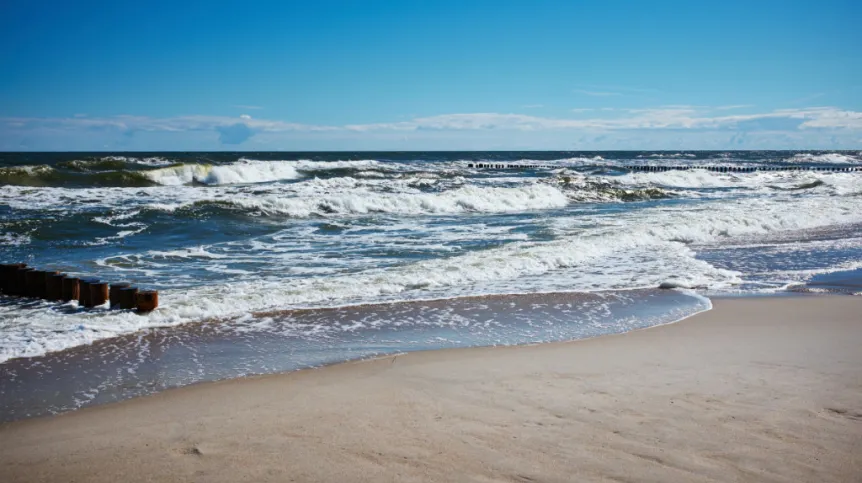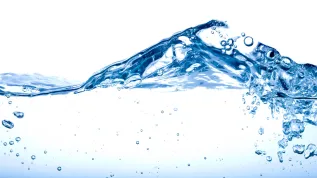
Polish nanotechnology scientists say it may soon be possible to obtain drinking water from sea water without using a power supply.
The team from Nanoseen in Gdansk have designed nanomembrane filters for purification and desalination of water from the Baltic Sea, which in July were awarded title of the Polish Product of the Future.
The device, which would solve the problems of many countries that struggle with drought or a lack of drinking water, would also be an attraction at many beaches and increase safety on ships, yachts and boats.
Called NanoseenX, the team’s design consists of a cascade of membranes that filter out different impurities, including salt. According to the company, within two minutes you can get 200 ml of water, from which 97 percent of salt is removed. The NanoseenX solution also has a mineralisation and salinity control, making it possible to remove over 99.9 percent of salt. The device works without a power supply - water flows through the filters due to gravity. The filter can be placed anywhere, for example on a beach or ship.
Because impurities and salt accumulate in membranes, the membranes must be regenerated from time to time. According to the originator of the solution, Bartosz Kruszka from Nanoseen, for now it is every 20 days of the device's operation. In an interview with Science in Poland, Kruszka explained that there are different ways to clean the nanomembranes - with compressed air, solar energy or by rinsing with clean water.
He said: “The nanomembranes can even be cleaned with water from the device. We estimate that for 1,000 litres of purified water, 8 litres are needed to regenerate the nanomembranes.”
The nanomembranes, however, wear out as they are used. For now, NanoseenX assumes that the device can be regenerated 10 times (therefore it will work for 200 days). The scientists are working on extending the lifetime of a single nanomembrane to 3,000 days including its regeneration processes, and the period between regenerations to three months. They also say that the nanomembranes are biodegradable.
Nanoseen has tested its device with water from the Baltic Sea sampled near Sopot. Kruszka said that in water bodies, in which pollution and salinity is different, the number and types of nanomembranes will have to be adjusted accordingly, so that they effectively capture all salt and impurities.
Kruszka told PAP that he became interested in the topic of nanotechnology in water desalination when he was studying at the Nicolaus Copernicus University.
Ten years ago he obtained a Diamond Grant for his work on nanotubes for water desalination. It has since turned out that nanotubes can be toxic and are not an ideal material for contact with drinking water. The topic of water treatment, however, remained important to him and the researcher continued to search for other solutions in this area. He added that nanotubes are not used in NanoseenX filters.
PAP - Science in Poland, Ludwika Tomala
lt/ agt/ kap/
tr. RL













